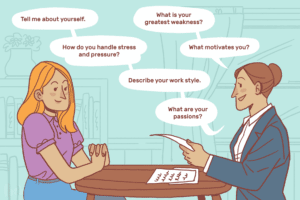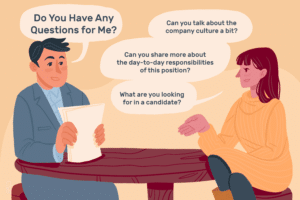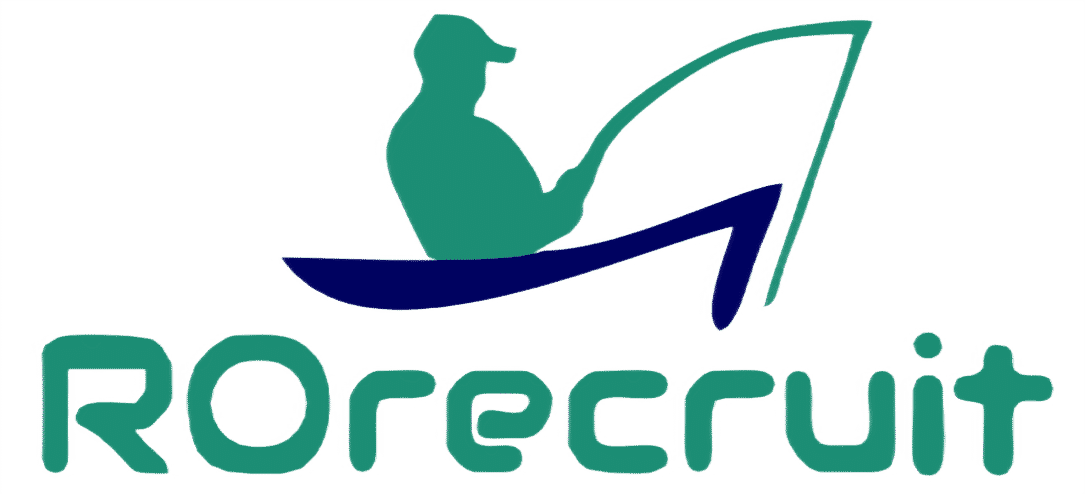You found an awesome job through ROrecruit, applied, and got a call from a real-live human being who wants to meet with you, then you have your face-to-face job interview scheduled — Congratulations! Now it’s time to prepare, and we’ve got you covered with the best “Face-to-Face Interview Tips” that will maximize your chances to impress your potential employer.
Even the smartest and most qualified job seekers need to prepare using some face-to-face interview tips. Why, you ask? Interview skills are learned, and there are no second chances to make a great first impression. Lucky for you, we’ve got a few great ones. Below, we provide you with 15 face-to-face interview tips as an overview of how to succeed in an interview in along with a detailed discussion surrounding each point.
Always check for updated vacancies here
1. Research the industry and company.

One of the most important face-to-face interview tips and it is one of the biggest mistakes’ applicants make in interviews is not knowing enough about the company.
Understanding key information about the company you’re interviewing with can help you go into your interview with confidence. Using the company’s website, social media posts and recent press releases will provide a solid understanding of the company’s goals and how your background makes you a great fit.
An interviewer may ask “how you perceive his company’s position in its industry?”, “who the firm’s competitors are?”, “what its competitive advantages are?”, and “how it should best go forward?”. For this reason, avoid trying to thoroughly research a dozen different industries. Focus your job search on just a few industries instead.
2. Re-read the job description.
You may want to print the job description out and begin underlining specific skills the employer is looking for. Read it several times so that you can have a full imagination of the job roles and responsibilities. Think about examples from your past and current work that align with these requirements.
3. Dress well and appropriate for this great event.

Interviews are formal events. Companies have their policies around dress codes for interviews. It is better to check beforehand to find out if you need to adhere to any company-specific rules.
Dress in a manner that is professionally appropriate to the position for which you are applying. It is rarely appropriate to “dress down” for an interview, regardless of company dress code policy. When in doubt, go conservative. you can search different websites that provides details about the proper dress code for each type of interview.
4. Always Be on Time.

Never be late for an interview. When it is a real face-to-face interview, then make sure to reach the location well before the schedule. It gives you time to settle down and be comfortable with the new environment.
You will have the time to collect your thoughts and get mentally prepared for the interview. It also helps to avoid any last-minute difficulties in finding the location.
5. Bring a copy of your CV to every interview.
Have a copy of your resume with you when you go to every interview. If the interviewer has misplaced his/her copy, you’ll save a lot of time (and embarrassment on the interviewer’s part) if you can just pull your extra copy out and hand it over.
6. Display Confident Body Language

The first thing an interviewer notices is body language. Hence, it is vital to exude confidence in your non-verbal communication. so, start with greeting the interviewer with a warm smile. During the interview your posture speaks a lot about you. Always sit straight and don’t slouch. Don’t fidget around with items kept nearby.
It is also essential to have the right facial expression. You don’t want to smile or laugh during a serious discussion. Understand the gravity of the point the interviewer is making and behave accordingly.
Always make eye contact. It is a critical body language during any communication. It makes the interviewer feel that you are confident and also paying attention. However, if there is more than one interviewer, try to make sure to shift your attention regularly. It makes each one of them feel equally important.
(Things you should avoid during an interview)
7. Clarify your “selling points” and the reasons you want the job.
Prepare to go into every interview with three to five key selling points in mind, such as “what makes you the best candidate for the position”. Have an example of each selling point prepared (“I have good communication skills. For example, I persuaded an entire group to …”).
And be prepared to tell the interviewer why you want that job – including what interests you about it, what rewards it offers that you find valuable, and what abilities it requires that you possess. If an interviewer doesn’t think you’re really, really interested in the job, he or she will not give you an offer – no matter how good you are!
8. Prepare for common interview questions.

Every “how to face-to-face interview tips” book has a list of a hundred or more “common interviews questions”. (You might wonder just how long those interviews are if there are that many common questions!) So how do you prepare? Pick any list and think about which questions you’re most likely to encounter, given your age and status, for example (about to graduate, looking for a summer internship). Then prepare your answers so you will not have to fumble for them during actual interviews.
9. Line up your questions for the interviewer.

Come to the interview with some intelligent questions for the interviewer that demonstrate your knowledge of the company as well as your serious intent. Interviewers always ask – usually at the end of the interview – if you have any questions, try always to have one or two ready in your mind, they like it when you ask smart questions that shows your interest with the job.
10. Practice, practice and practice.
It’s one thing to come prepared with a mental answer to a question like, “Why should we hire you?” It’s another challenge entirely to say it out loud in a confident and convincing way. The first time you try it, you’ll sound garbled and confused, no matter how clear your thoughts are in your own mind! Do it another 10 times, and you’ll sound a lot smoother and more articulate.
One of the most important face-to-face interview tips is to practice by getting two friends and start interviewing each other in a “round robin”: one person acts as the observer and the “interviewee” gets feedback from both the observer and the “interviewer.” Go for four or five rounds, switching roles as you go. Another idea (but definitely second-best) is to tape record your answer and then play it back to see where you need to improve. Whatever you do, make sure your practice consists of speaking aloud. Rehearsing your answer in your mind won’t cut it.
11. Score a success in the first five minutes.
Some studies indicate that interviewers make up their minds about candidates in the first five minutes of the interview, and then spend the rest of the interview looking for things to confirm that decision! So, what can you do in those five minutes to get through the gate? Come in with energy and enthusiasm, and express your appreciation for the interviewer’s time. (Remember: He/She may be seeing a lot of other candidates that day and may be tired from the flight in. So, bring in that energy!)
Also, start off with a positive comment about the company – something like, “I’ve really been looking forward to this meeting [not “interview”]. I think [the company] is doing great work in [a particular field or project], and I’m really excited by the prospect of being able to contribute.”
12. Think positive.
No one likes a complainer, so don’t dwell on negative experiences during an interview. Even if the interviewer asks you point blank, “What did you like least about that previous job?” or “What courses have you liked least?”, don’t answer the question as it’s been asked.
Instead, say something like, “I liked [a previous job] quite a bit, although now I know that I really want to move to a new job”.” Or “Well, actually I’ve found something about all of my classes that I’ve liked. For example, although I found [class] to be very tough, I liked the fact that [positive point about the class]”.
13. Make the most of the “Tell me about yourself” question.

Many interviewers begin interviews with this question. So how should you respond? You might go into a story about where you were born, what your parents do, how many brothers and sisters and dogs and cats you have! But would you rather have the interviewer writing down what kind of dog you have? – or why the company should hire you?
Consider responding to this question with something like: “Well, obviously I could tell you about lots of things, and if I’m missing what you want, please let me know. But the three things I think are most important for you to know about me are [your selling points]. I can expand on those a little if you’d like.” Interviewers will always say, “Sure, go ahead.” Then you say, “Well, regarding the first point, [give your example]. And when I was working for [company], I [example of another selling point].” Etc.
This strategy enables you to focus the first 10-15 minutes of the interview on all of your key selling points. The “Tell me about yourself” question is a golden opportunity. Don’t miss it!
14. Be ready for “behavior-based” interviews.

One of the most important face-to-face interview tips is to learn how to answer these types of questions, when people required to describe experiences they have had that demonstrate behaviors that the company thinks are important for a particular position. You might be asked to talk about a time when you made an unpopular decision, displayed a high level of persistence, or made a decision under time pressure and with limited information, for example.
- Step #1 is to anticipate the behaviors this hiring manager is likely to be looking for.
- Step #2 is to identify at least one example of when you demonstrated each behavior.
- Step #3 is to prepare a story for each example.
Many people recommend using SAR (Situation-Action-Result) as a model for the story. Step #4 is to practice telling the story. Also, make sure to review your resume before the interview with this kind of format in mind; this can help you to remember examples of behaviors you may not have anticipated in advance.
15. Rejected …… Don’t give up, and follow these steps…

No one enjoys getting turned down for a job, and if you’ve done a lot of preparation for a role that you really wanted, it can be harder still to accept a rejection. So, if you’ve received a rejection letter for a job you have applied or for an interview you made recently (and you might receive a lot of them during your searching journey), just NEVER give up! On the contrary, with the right mindset, you can turn the experience into a career development opportunity. Here’s how…
Follow These Steps When You Are Rejected:
- Don’t take it personally: Don’t regard a job rejection as a statement about you personally. It’s unlikely that not getting the job was the result of the hiring manager making a conscious vote against you. The greater likelihood is that another candidate’s experience or personality resonated more strongly with the hiring manager.
- Ask for Feedback (if possible): Feedback is the most important aspect in any form of communication. Getting a feedback from an experienced person always proves helpful. You might have not get the job, however, feedback or appraisal from the interviewer can help you understand your weaknesses, incapability, and inappropriateness regarding the rejection.
- Focus on your strengths: Focusing on your strengths can provide the renewed energy and momentum you need to find the job that’s right for you. Create a list of your strengths and key contributions you’ve made to previous workplaces.
- Do not repeat the Mistakes: You’ve got a rejection already, and this is the best time as you already know what to showcase, and what not to mess with. Play smart, and do not repeat your mistakes. Prepare for the interview and common questions before-hand.
- Learn from what happened: Re-read your resume and cover letter to see how they could have been better tailored for the opportunity. If there was an interview, reflect back on the conversation and note opportunities to do better next time.
If you follow the above 15 Face-to-Face Interview Tips, you’ll be as prepared as any candidate an interviewer has ever seen. Check out our Open Jobs to start building your new career today.
Good Luck !!
